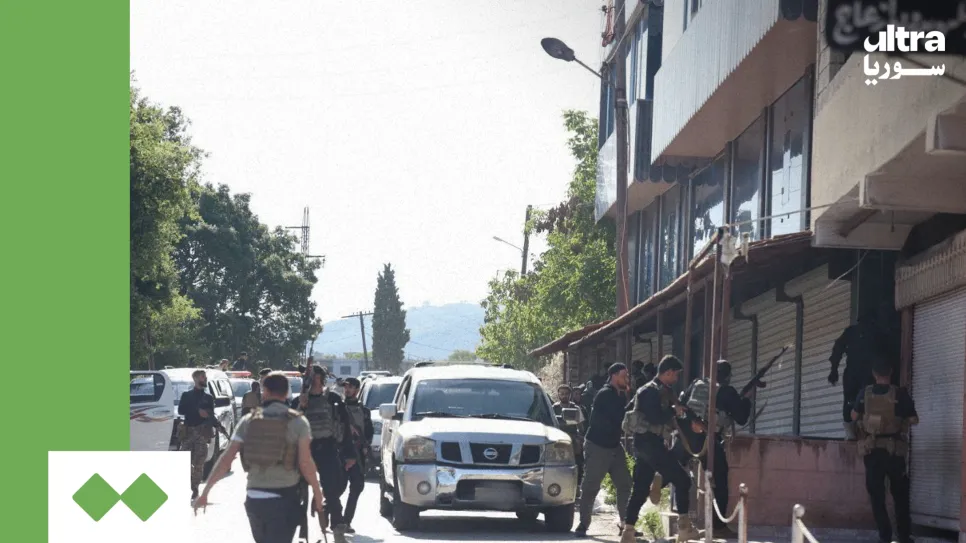Syria’s volatile southern province of Daraa is once again grappling with a wave of targeted killings, while the coastal stronghold of Latakia witnesses a continued clampdown by internal security forces following a series of attacks on state institutions.
On Thursday, two young men—later identified by local media as traffic police officers from the towns of Kouya and Beit Ara—were gunned down near the village of Massaken Jilin in western Daraa. The assailants remain unidentified.
In a statement released shortly after the incident, Daraa’s Directorate of Internal Security condemned what it described as a “heinous crime,” vowing swift justice. “These cowardly acts will not go unpunished. We affirm our commitment to pursue those responsible and ensure they are held accountable before the law,” the statement read. It further warned against any attempt to destabilise the region: “We will strike with an iron fist against anyone who dares to tamper with the province’s fragile security.”
The attack comes amid a broader deterioration in security across Daraa. Just days earlier, a former opposition commander, Maher al-Labbad, and his son were assassinated in the northern town of al-Sanamayn while at a local car wash. Al-Labbad had previously led the “Fajr al-Tahrir Brigade” prior to the Syrian government’s reconquest of the province under Russian-brokered reconciliation agreements in 2018. He had survived two previous assassination attempts in 2020 and 2021.
The killing of al-Labbad triggered further unrest in the town, with local sources reporting indiscriminate gunfire in the aftermath, resulting in the deaths of two civilians: Abdullah Khalil al-Dhiab and Mubarak Mousa al-Qablan.
While Daraa spirals into violence, Syria’s coastal region is seeing intensified security operations. Internal Security Forces in Latakia province have launched a sweeping campaign in the town of Daliyah, in the Jableh countryside, following an armed assault on the local telecommunications centre on Wednesday evening.
Authorities imposed an immediate curfew on the towns of Daliyah and Beit Ana in the wake of the attack, which was blamed on an “outlawed terrorist group.” On Thursday, the Interior Ministry announced that several suspects had been apprehended and that operations to restore control were ongoing.
The assault in Daliyah is part of a broader pattern of unrest in Latakia’s rural areas. On Sunday, Internal Security Forces arrested Amir Ismail Nassif in the village of al-Dabbash, alleging his involvement in the 6 March coordinated attack on army and police checkpoints across Syria’s Mediterranean coast. During the arrest, authorities reportedly discovered a cache of light weapons and quantities of narcotics hidden near his home.
In a related development, the ministry also announced the arrest of Mazen Qara Jannah, described as a former informant for Syria’s notorious Political Security and Military Intelligence branches. According to official claims, Qara Jannah had operated in rebel-held areas before the fall of the previous regime and was involved in gathering intelligence that contributed to lethal government operations against civilians and military defectors. He has been referred to the judiciary for prosecution.
The twin crises in Daraa and Latakia underscore the persistent fragility of Syria’s post-war security landscape. As former opposition figures are targeted in the south and alleged insurgents are hunted in the coastal heartland, the country’s internal divisions—and the inability of the transitional authorities to fully impose order—remain starkly visible.
This article was translated and edited by The Syrian Observer. The Syrian Observer has not verified the content of this story. Responsibility for the information and views set out in this article lies entirely with the author.


